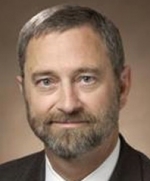NICoE, the National Intrepid Center of Excellence, was created through a congressional expectation that there'd be a center of excellence for traumatic brain injury. Many more than 2000 active duty service members have gone through a month-long treatment program since it opened in 2010. The aim of the program is to take individuals who were active duty and wanted to stay active duty. So NICoE emphasizes the idea that they would relieve symptoms, put people on a trajectory of recovery and aim them back into the the military world that they live in.
Learn more about some of the treatments available for those recovering from brain injury and PTSD using our Treatment Hub.
Watch more videos from Dr. James Kelly.
So NICoE, the National Intrepid Center of Excellence, was created, basically, through a congressional expectation that there'd be a center of excellence for traumatic brain injury. And initially they thought a separate one for psychological health conditions. That led to the creation of an overarching organization called DCO, Defense Centers of Excellence for psychological health and TBI. The ... the headquarters, or the Institute hub of that umbrella organization, was NICoE and is NICoE and so there is a place that does the clinical care. Even now, many more than 2000 active duty service members have gone through a month-long treatment program since it opened in 2010. And the idea was to break down barriers between psychological health silos and neurological or traumatic brain injury silos within the military health system by combining them in one location so that the most refractory a few all cases of individuals who had both a neurological on a psychological condition could go to one place and have all of those issues addressed. The main theme, if you will, of that interdisciplinary project was to take those individuals who were active duty and wanted to stay active duty so that, in fact, we would then, and NICoE continues to, emphasize the idea that they would relieve symptoms, put people on a trajectory of recovery and aim them back into the the military world that they live in. It was intended all along not to be an exit door from the military. That was important to me as its first director. That it not be seen as a place that the military go when they're just so injured and so dysfunctional that they'll never get better. And it was proven, and it continues to be shown, that the vast majority of individuals that go through that program stay active duty and participate in careers for a span of time thereafter. Occasionally, there are individuals who still need to transition to veteran status and that's where we come in at the Marcus Institute and in the VA, which we are partnering with, so that act after a career in the military the ... the, even those patients that are coming through NICoE actually have additional places to obtain care. This video was produced by BrainLine thanks to generous support from the Infinite Hero Foundation.
This video was produced by BrainLine thanks to generous support from the Infinite Hero Foundation.
About the author: James Kelly, MA, MD, FAAN
James Kelly, MA, MD, FAAN, a neurologist, is one of America’s top experts on treating concussions. He currently serves as Executive Director of the Marcus Institute for Brain Health.

